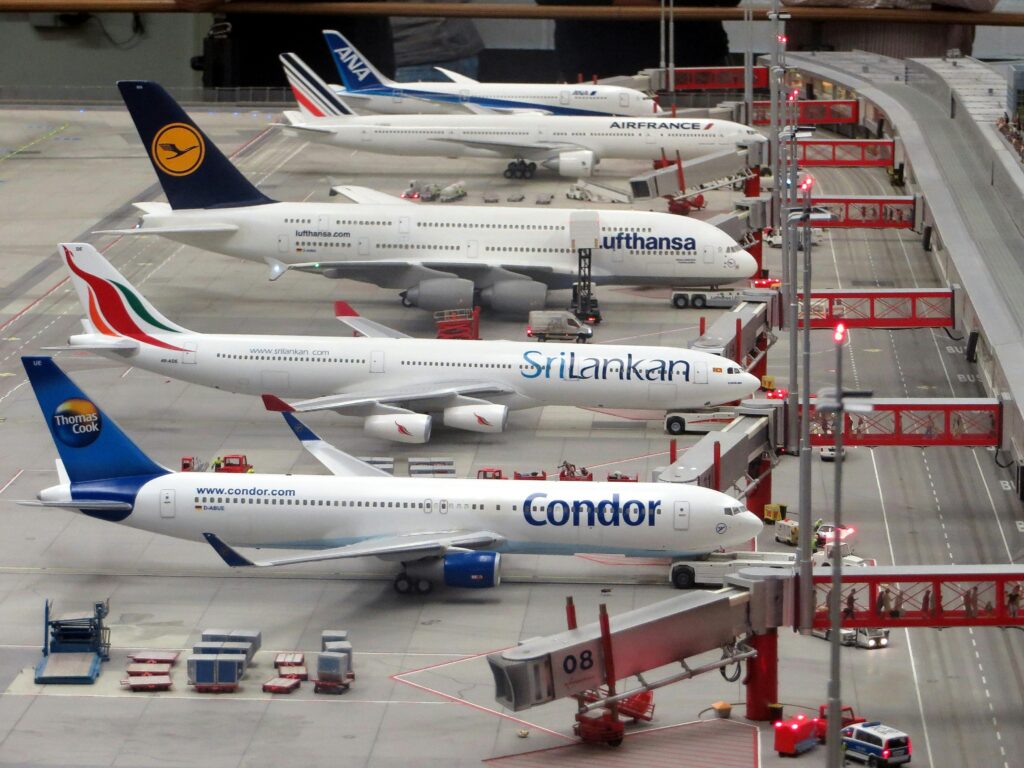An importer cannot receive their goods until they have passed through customs and are free to move within the Kingdom of Saudi Arabia. Therefore, we dedicate this guide to importers who use air freight to receive their goods, explaining the basic terms used in air customs clearance for a deep understanding of this process.
Air Customs Clearance
Air customs clearance is the process through which all necessary requirements and conditions imposed by the Unified Customs System are verified to allow the entry or exit of goods from the Kingdom. This process includes submitting the required documents, paying customs duties and taxes, and inspecting the goods. These procedures are carried out by the customs broker in coordination with the customs authorities.
Customs Declaration
A customs declaration is a document containing detailed information about imported or exported goods. The declaration includes information such as the description of the goods, quantities, value, origin, and shipments. This declaration is essential for submission to the customs authorities to enable them to assess the duties and taxes due on the goods, as well as to verify their compliance with applicable regulations and laws. In Saudi Arabia, the customs declaration is submitted electronically through the “Fasah” platform, which speeds up the customs clearance process and increases its accuracy.
Customs Warehousing
Customs warehousing is the process of placing goods in designated warehouses under customs supervision until the required customs procedures are completed. Customs warehousing is necessary in cases where goods require additional inspection or when there is a delay in submitting the required documents. This storage is often for a limited period before fines or additional fees are imposed.
Customs Broker
A customs broker is an agent licensed by the customs authorities to represent clients in all customs operations. They are responsible for submitting all necessary documents and information to customs, coordinating the inspection of goods, and ensuring the payment of due duties and taxes. This means they play a very important role in completing the customs clearance process and ensuring compliance with regulations and laws in the Kingdom.
Customs Tariff
The customs tariff is a schedule issued by the Zakat, Tax and Customs Authority, containing the customs duties imposed by the authorities on imported goods. The customs tariff determines the percentage of duties that must be paid based on the type and value of the goods. The customs tariff is regularly updated to ensure its compatibility with changes in the local economy and international trade policies. Tariffs vary from one commodity to another based on several factors, such as the degree of necessity and the ability of the Saudi market to compete.
Customs Offense
A customs offense is a violation of customs laws and regulations. It may result from providing incorrect data, attempting to smuggle prohibited goods, or failing to pay due duties. Penalties range from financial fines to more severe penalties that may include imprisonment, depending on the seriousness of the violation and its impact on the economy or national security. An offense may end with a settlement agreement with customs whereby the authorities waive legal action against the involved person, provided they adhere to certain conditions.
Customs Area
The customs area is the designated area at the airport where all customs procedures related to imports and exports are carried out. This area is under the direct supervision of the customs authorities and is considered a highly secure area. The customs areas at King Khalid International Airport and King Abdulaziz International Airport are among the most important customs areas that regulate air trade movement.
Customs Declaration
A customs declaration is an undertaking submitted by the importer or exporter to customs detailing the shipment and goods. It includes information such as the commercial value of the goods, country of origin, and purpose of import or export. The customs declaration is a core document in the customs clearance process, as it helps the authorities assess the due duties and verify the conformity of the goods with customs regulations.
Exempt Goods
Exempt goods are goods on which no customs duties are imposed upon import or export. Examples of exempt goods in Saudi Arabia include medical tools, basic raw materials for industry, and some goods imported for humanitarian or educational purposes, in addition to food items such as beef, garlic, cauliflower, and tuna. Customs exemption is one of the most important incentives provided by the government to support specific sectors of the economy or to stimulate investments. Customs Duty Refund
Customs duty refund is the process of recovering duties paid on imported goods, in certain cases such as re-exporting goods or if the goods were damaged before being distributed within the Kingdom. The process of customs duty refund requires submitting an official request to the customs authorities accompanied by supporting documents, such as purchase invoices and certificates of origin.
Customs Office
The customs office is the government body responsible for implementing customs laws and regulations at the airport. It has the authority to prevent the entry of illegal or prohibited goods and collect customs duties due on imported goods. There is more than one type of customs office, such as the loading office which is responsible for applying the customs seal in preparation for the goods’ transit, and the destination office where the transit process ends.
In conclusion, this was a quick overview of the most important terms in air customs clearance that space allowed us to mention, which have become an essential part of the language of international and local trade. To deal effectively with customs operations and avoid any delays or problems you may face during the air customs clearance of your goods, contact Border Support Company for Customs Clearance, which helps you complete the inspection of your goods in the easiest and fastest way.


